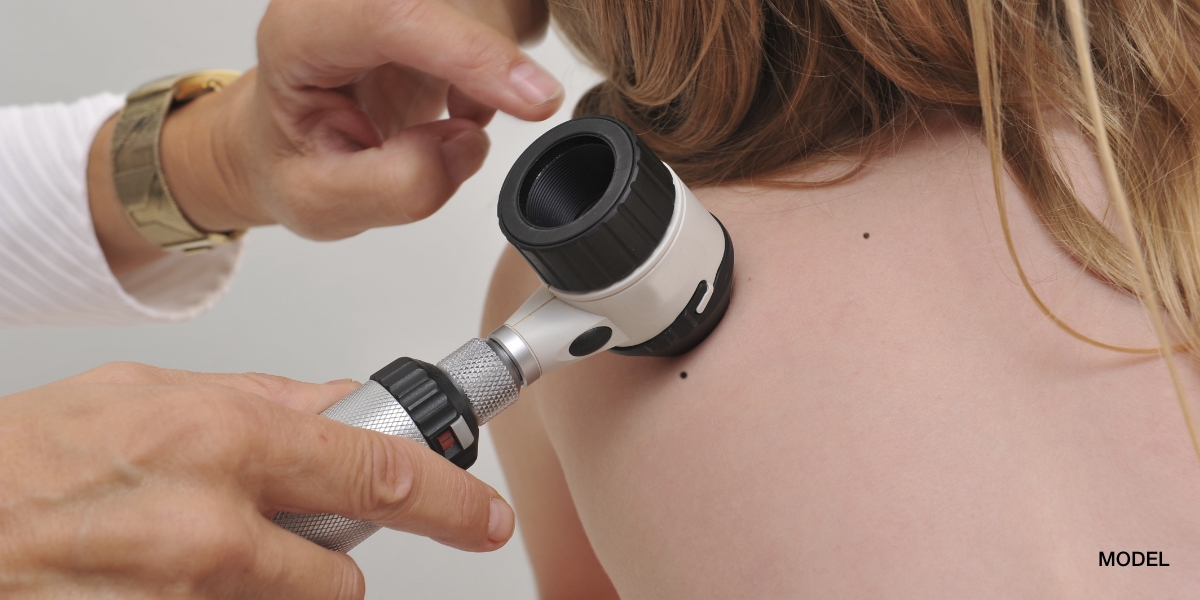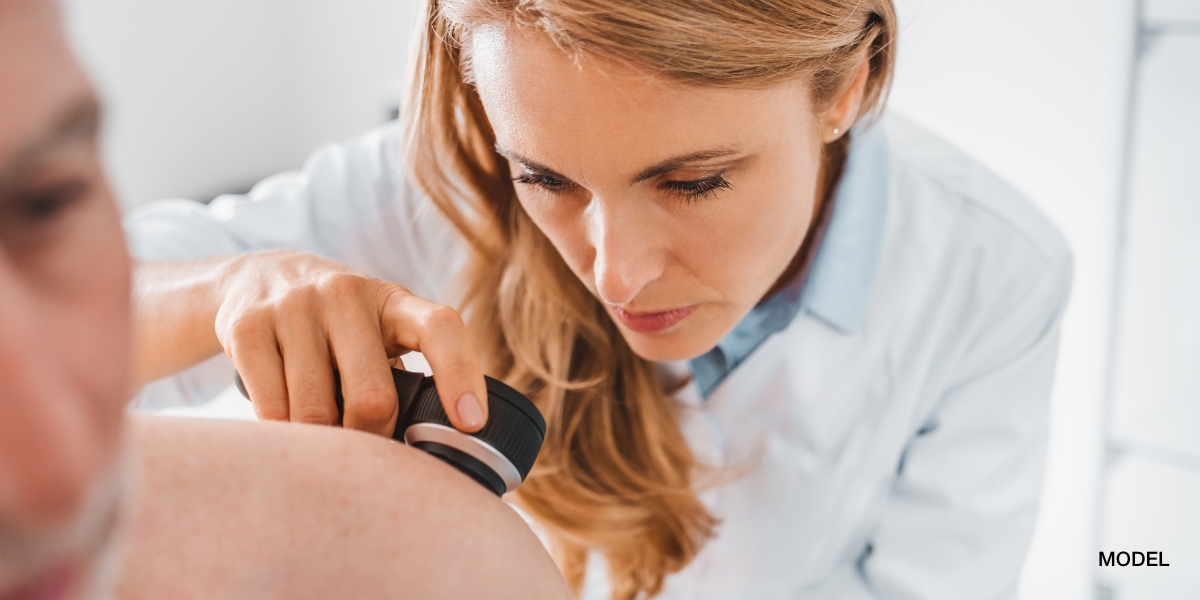October 3, 2025
Every spot on your skin tells a story. Some are reminders of sunny days spent outside, while others are part of your genetics. But how can you tell the difference between a harmless freckle, a benign mole, and something more serious like skin cancer? Understanding what you see on your skin is an important step in protecting your health and making sure nothing goes unnoticed.
Freckles
Freckles are flat, light- to dark-brown spots that usually show up in sun-exposed areas such as the face, arms, and shoulders. They appear when your skin produces extra melanin as a protective response to UV rays. People with lighter skin tones often notice freckles more, and they may darken in the summer months and fade in the winter.
Can Freckles Become Cancerous?
Freckles signal higher sensitivity to the sun, which increases the risk of sun-related skin damage over time. Freckles themselves will not become cancerous, but they serve as a reminder to:
- Wear sunscreen every day
- Limit direct sun exposure
- Schedule routine skin checks if you are prone to new spots
A spot that looks like a freckle but appears suddenly or looks unusual compared to your others should be examined by a dermatologist.
Moles
Moles are growths of pigment-producing cells, known as melanocytes. They can be flat or raised, round or oval, and range in color from pink to deep brown or black. Most people develop moles in childhood or adolescence, and many remain unchanged for years. Some may even lighten or fade as you age.
Can Moles Become Cancerous?
For the most part, moles are noncancerous and harmless. The concern comes when a mole changes in appearance. Warning signs include:
- A mole that begins to look different from the others on your body (often referred to as the “ugly duckling” rule).
- New moles appearing in adulthood, especially after age 30.
- Moles that itch, bleed, or grow.
Because melanoma, the most serious type of skin cancer, can start in or near a mole, paying attention to changes is critical. Dr. Perri can evaluate whether a mole is completely benign or whether it needs a biopsy for confirmation.
What to remember: Most moles are stable and harmless, but any new or changing mole deserves a professional check.
Skin Cancer
Skin cancer occurs when skin cells grow abnormally and uncontrollably. The three most common forms are:
- Basal cell carcinoma: Often appears as a shiny bump, red patch, or sore that does not heal.
- Squamous cell carcinoma: May look like a scaly patch, wart-like growth, or sore that crusts and bleeds.
- Melanoma: The most aggressive type, usually presenting as a dark mole or spot that changes in appearance.
Unlike freckles and most moles, skin cancer is not harmless and will not go away on its own. Early warning signs include a sore that lingers, a new growth that looks unusual, or a mole that meets the ABCDE rule.
The most important fact about skin cancer is this: when detected early, it is highly treatable. The earlier it is found, the less invasive treatment tends to be, and the higher the chance of complete removal with minimal scarring. Delaying care gives cancer more time to spread deeper, which can complicate treatment.
What to remember: If a spot looks different, grows, bleeds, or does not heal, it is time to have it examined.
The Value of a Professional Skin Exam
Even spots that seem ordinary can sometimes be something more. The safest step is to have a dermatologist examine any area that changes or causes concern. At Perri Dermatology, Dr. Perri provides thorough skin checks with a focus on skin cancer detection and treatment. If a suspicious lesion is found, he can perform a biopsy to provide answers and guide next steps.
Protect Your Skin Health
If you’re uncertain about a mole, freckle, or any new spot on your skin, scheduling a screening is a proactive way to protect your health. At Perri Dermatology in The Woodlands and Conroe, Texas, Dr. Perri provides thorough evaluations focused on skin cancer detection and prevention. Learn more about how a simple appointment can give you clarity, reassurance, and confidence in your skin’s health.




